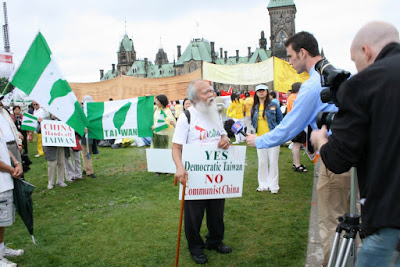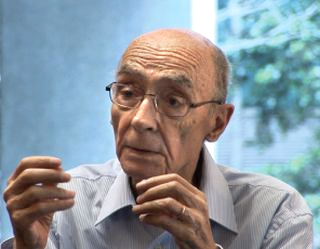The media says, the world has arrived in Toronto. The world's most powerful leaders have landed, representing around around 85% of the global economy and two thirds of our population. And they are gathered here for the biannual G20 summit.
But to me, there are four worlds in Toronto right now. In the centre of all the protests, security forces, and fences lies the Convention Centre. A place where leaders, delegates, and their country's envoys gather to take pictures, take part in gift exchanges, and hold discussions. It is a peaceful and quiet world, where, despite disagreement between countries, delegations can enjoy five-star accommodations, lounge among famous artwork and an artificial lake, watch some soccer, and enjoy iconic Canadian food.
At only a cost of fourteen million dollars an hour, Canada takes this opportunity to welcome our guests. We hope for a productive meeting, or at the very least, some agreement over issues regarding economic recovery and our bank systems. Life seems almost Utopian. Yes, they're still dealing with the economic crisis, but life at the downtown core seems to be relaxed, a paradise with countries staking out their own luxury hotels, and our leaders clinking their wine glasses.
But just outside the security perimeter, we run into a completely different world. Actually, two.
There are the protesters. They gathered this morning and early afternoon at Queen's Park, with a range of issues covering every topic one could imagine. Maternal health. Aboriginal rights. Foreign Aid. Environmental protection. Human rights in Southeast Asia. Careless spending. Tibet. The War on Terrorism. Protests attracted unions, students, Native Americans, international activists, and supporters of large organizations such as Greenpeace.
To the protesters, the summit has arrived with media attention, and this opportunity can be used for publicity. To let the world know that they care about the environment and that we should too; to put pressure on our leaders to act on human rights; to inspire economic reform or to influence a party's platform. With signs, banners, megaphones, and their best shouting voices, some park themselves in designed demonstration areas, while others march throughout the downtown core. Their action comes at a cost - transportation in the area has been shutdown, and there are minor scuffles with the police, but when it comes to demonstrations, this isn't anything new, almost routine. Show up. Stand up for your cause. And leave.
Among these peaceful protesters, however, we find some self described "anarchists" - people who disagree with centralized governance, instead promoting a stateless society. I agree with David Miller - these people are not to be labelled protesters, unfair to those described above. Our Mayor called them "thugs", and along with Bill Blair, our Chief of Police, I believe that these people who associate themselves with the"Black Blok" are criminals, and should be held responsible for their direct violation of laws and damage to local businesses and city property.
These "anarchists" view the protests in a different light, seeing the police presence as infringements of their rights, resulting in deliberate attacks on officers, their vehicles, and to the businesses in the downtown area. Especially at risk are banks and American companies/franchises - these represent corporate evil. This conflict is yet another world, separate from the other protesters and fenced away from the summit activities. I strongly commend the police force in their struggle to maintain control over the rioters and reduce the amount of damage to the area, while enduring attacks from the members of the "Black Blok". Freedom of speech is tolerated. Protests are allowed. Damaging property, attacking police, and causing riots is not, and it doesn't do anything to help their cause.
The fourth world is a shocked Toronto. Citizens, politicians, police officers, and journalists almost speechless with unprecedented events in the city. Some feel "Profound Disappointment". Some are worried - about their businesses, their city's reputation, their own security. Others are more confused, angered. We aren't sure what to do. We're not even sure who to condemn. Sure, it's easy to blame the rioters, but is that any good? Is that the root of the problem? Can we blame our government? Is any of this a fault of the protests? Does this justify the security costs? Are we responsible as well? Are there responsibilities that we've missed as citizens?
For us spectators, it can be hard to connect to the other worlds. Just like it's hard for them to connect to us. Some don't see any purpose in protesting, and can't understand the motivation of the "anarchists". Others can't see why many stand idly by as they see their cause, their world, fade away. The "Black Blok" and Politicians seem to be living in their own worlds at the moment. It can be a challenge for us to understand the politics of the G20, and it's hard to expect our leaders to be able to understand every single one of the issues we bring up, and even if they could, what are the chances that they'll be able to tend to each and every concern?
At this point, I'm not sure what else to say. The blame game won't get us far. Yes, I definitely believe that it was a bad decision to host the G20 in the downtown core, and the costs have been excessive. But for the time being, it's too late for that, and also it's besides the point. Our world is fragmented. How can we bring us all closer together?












